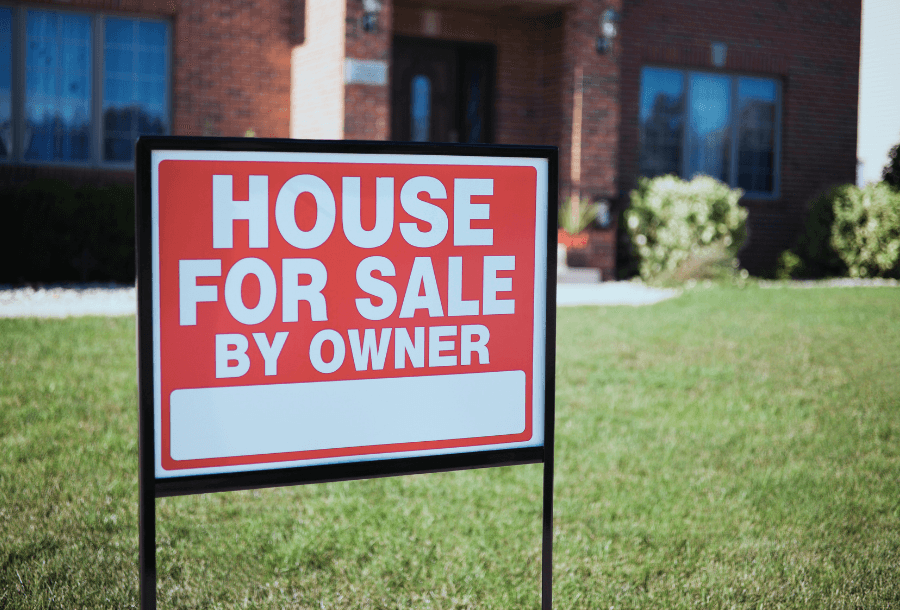Can you sell your property without an estate agent? Selling a property independently is an increasingly attractive option for homeowners seeking to maximise their financial returns. While the process might seem challenging, a strategic approach can help you navigate the complexities of a private property sale successfully. This guide will walk you through every stage to sell your property without an estate agent.
Contents
- 1 1. Understanding Property Valuation
- 2 2. Preparing To Sell Your Property Without an Estate Agent
- 3 3. Marketing Your Property Effectively
- 4 4. Navigating Legal and Financial Considerations
- 5 5. Managing Property Viewings
- 6 6. Negotiation and Closing the Sale
- 7 Key Takeaways
- 8 Alternative Selling Option: Cash Buyer Companies
- 9 Frequently Asked Questions
1. Understanding Property Valuation
Determining the right price for your property is the most critical step in the selling process. Many homeowners make the mistake of either overpricing or undervaluing their property, which can significantly impact sale potential.
A comprehensive valuation requires multiple approaches:
- Utilise online valuation tools from Zoopla and Rightmove
- Conduct thorough local market research
- Obtain professional valuations from independent valuers
- Compare recent sales of similar properties
- Consider unique property features and recent improvements
- Account for local neighbourhood developments
- Analyse current market trends and economic conditions
Professional valuations offer an unbiased assessment that goes beyond basic calculations. Chartered surveyors will examine factors such as:
- Structural condition
- Potential renovation opportunities
- Specific location advantages
- Unique property characteristics
- Comparative market positioning
When setting your price, find a strategic balance:
- Avoid pricing too high and deterring potential buyers
- Ensure you don’t undervalue your property
- Remain flexible and open to market feedback
- Prepare to adjust pricing based on initial interest
2. Preparing To Sell Your Property Without an Estate Agent
First impressions are crucial in property sales. Potential buyers form opinions within seconds of viewing a property, so comprehensive preparation is key.
Deep cleaning goes beyond typical maintenance:
- Professional carpet and floor cleaning
- Thorough window washing
- Addressing accumulated wear and tear
- Removing all visible signs of everyday living
- Ensuring a spotless, well-maintained appearance
Decluttering is a strategic process:
- Remove personal photographs
- Clear out excess furniture
- Organise storage spaces completely
- Create a neutral, welcoming environment
- Allow potential buyers to visualise themselves in the space
Repair and improvement strategies:
- Fix all minor and major structural issues
- Repair leaky outlets and wall cracks
- Update outdated fixtures
- Ensure all electrical systems function correctly
- Address any potential buyer concerns proactively
Exterior presentation matters significantly:
- Maintain a well-kept garden
- Paint exterior walls if necessary
- Clean driveways and walkways
- Create an inviting entrance
- Consider minimal landscaping improvements
3. Marketing Your Property Effectively
With the current digital age we live in, marketing requires a multi-channel approach with several key components:
Professional visual presentation:
- Invest in high-quality property photography
- Create comprehensive virtual tours
- Develop detailed floor plans
- Capture property from multiple angles
- Highlight unique features and selling points
Digital marketing channels:
- List on major property websites
- Utilise social media platforms
- Create targeted Facebook Marketplace listings
- Share in local community groups
- Leverage personal and professional networks

Listing content strategy:
- Provide detailed room measurements
- Highlight recent improvements
- Discuss energy efficiency features
- Explain unique property characteristics
- Use clear, compelling language
Ensure you have all the essential documentation:
- Property title deeds
- Energy Performance Certificate
- Maintenance records
- Utility bill history
- Home improvement documentation
Financial planning considerations:
- Calculate potential estate agent commission savings
- Budget for marketing expenses
- Plan for professional service costs
- Consider potential tax implications
- Prepare for transaction-related expenses
Legal preparation steps:
- Consult a solicitor for contract review
- Ensure all paperwork is accurate
- Understand local property sale regulations
- Prepare comprehensive sale documentation
- Protect your legal interests throughout the process
5. Managing Property Viewings
Without an estate agent to show potential buyers around your property, all viewings fall to you:
- Create a welcoming, neutral environment
- Prepare a comprehensive property information pack
- Be flexible with viewing schedules
- Allow independent property exploration
- Provide honest, detailed information
- Address potential buyer questions professionally
6. Negotiation and Closing the Sale

Be ready with your negotiation strategy:
- Set a minimum acceptable price
- Understand current market dynamics
- Remain objective and professional
- Consider offers holistically
- Look beyond just the monetary value
- Evaluate the buyer’s overall position
- Be prepared to justify your pricing
Key Takeaways
- Selling a property without an estate agent requires thorough preparation
- Accurate valuation is crucial to attracting the right buyers
- Professional presentation significantly increases sale potential
- Comprehensive marketing reaches more potential buyers
- Legal compliance and financial planning are essential
- Patience and attention to detail drive successful sales
Alternative Selling Option: Cash Buyer Companies
Cash buyer companies offer a unique alternative to traditional property sales, providing a potentially faster and more straightforward selling process. These companies specialise in purchasing properties quickly, often in any condition and can be an attractive option for sellers facing time constraints or challenging property situations.
How It Works
Cash-buying companies typically follow a streamlined process:
- Provide an instant online property valuation
- Conduct a quick property assessment
- Make a cash offer within 24-48 hours
- Complete the purchase in as little as 7-14 days
- Purchase properties in any condition
- Eliminate traditional sale complications
Advantages of Selling to a Cash Buyer
Benefits of this selling method include:
- Guaranteed sale with no chain complications
- Rapid sale process
- No need for property repairs or improvements
- Avoid traditional marketing and viewing processes
- Eliminate estate agent fees
- Reduce stress associated with lengthy sales
- Helpful for inherited properties, divorces, or relocation
Potential Drawbacks to Consider
There are some important considerations before choosing to go down this route:
- Typically offers are below market value (10-20% reduction)
- Limited negotiation potential
- Less opportunity to maximise property value
- Risk of working with less reputable companies
- Potential for lower financial returns
Choosing a Reputable Cash Buyer
Your due diligence is key to finding a trustworthy company:
- Check company registration and credentials
- Read customer reviews and testimonials
- Verify membership in professional bodies
- Request multiple valuations
- Understand full terms and conditions
- Check for transparent fee structures
- Avoid companies with high-pressure sales tactics
Valuation and Offer Process
Typical steps in the cash buyer valuation:
- Initial online or telephone property assessment
- Detailed property survey
- Consideration of property condition
- Market value analysis
- Quick cash offer presentation
- Option to accept or decline the offer
- Minimal obligation during the initial stages
Legal Considerations
There are some important legal aspects to review:
- Obtain independent legal advice
- Understand full terms of the sale
- Check for hidden fees
- Review completion timeline
- Verify the company’s financial capabilities
- Ensure proper legal documentation
- Protect your interests throughout the process
When to Consider a Cash Buyer
The ideal scenarios for cash home sales:
- Urgent need to sell quickly
- The property requires extensive repairs
- Facing repossession
- Inherited property
- Divorce or separation
- Relocation
- Challenging property market conditions
Frequently Asked Questions
Q1: How much can I save if I sell without an estate agent?
Potential savings range from 1-3% of your property’s value, which could be £3,000-£9,000 on an average UK property.
Q2: Is a private property sale legally valid?
Yes, you can legally sell your property independently without an estate agent.
Q3: How long does a private sale typically take?
The sale process can take 2-6 months, depending on market conditions and property type.
Q4: Do I need a solicitor for a private sale?
While not mandatory, a solicitor is recommended to ensure legal compliance and a smooth transaction.
Q5: What are the biggest challenges in selling privately?
Primary challenges include accurate pricing, effective marketing and managing legal and negotiation processes.
Q6: Are cash buyers a reliable option?
Cash buyers can be reliable if you carefully research and choose a reputable company, understanding the trade-offs between speed and potential value.
Related articles
Selling Your House to a Cash Buyer
Understanding the 3 Types of Estate Agency Fees


